Is The Magician’s Nephew Science-Fiction? | Talking Beasts
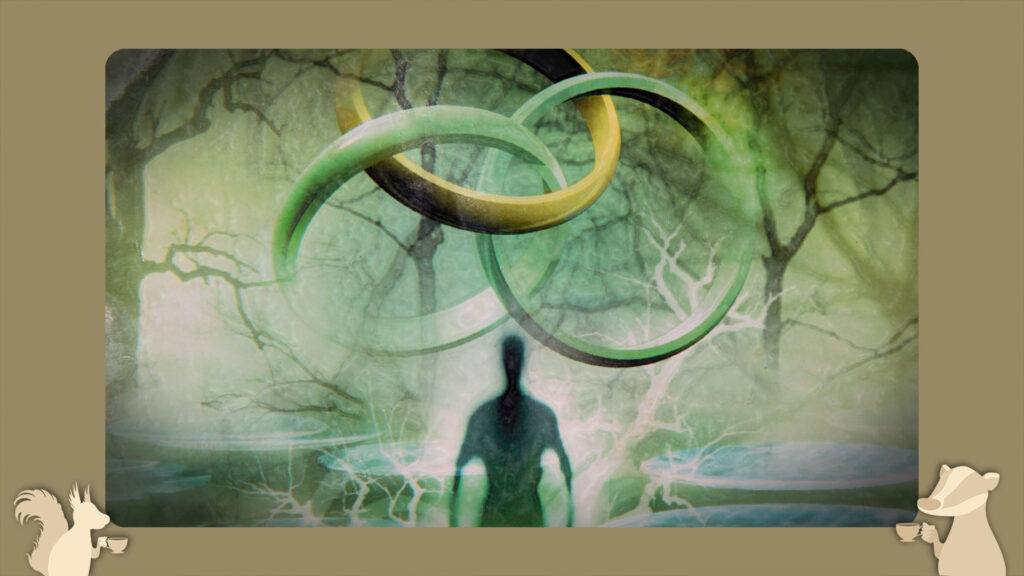
Podcast: Play in new window | Embed
In this episode, the podcasts try to wrap their brains around one of C.S. Lewis‘s most fascinating and enagmatic creations: The Wood between the Worlds. Compared to the rest of The Chronicles of Narnia, does this chapter feel notably…. different?
- Bonus video: Part 2 of this episode with more discussion about how pop culture defines “science-fiction.”
- “On Science Fiction” by C.S. Lewis

Listen to more episodes of Talking Beasts: The Narnia Podcast.

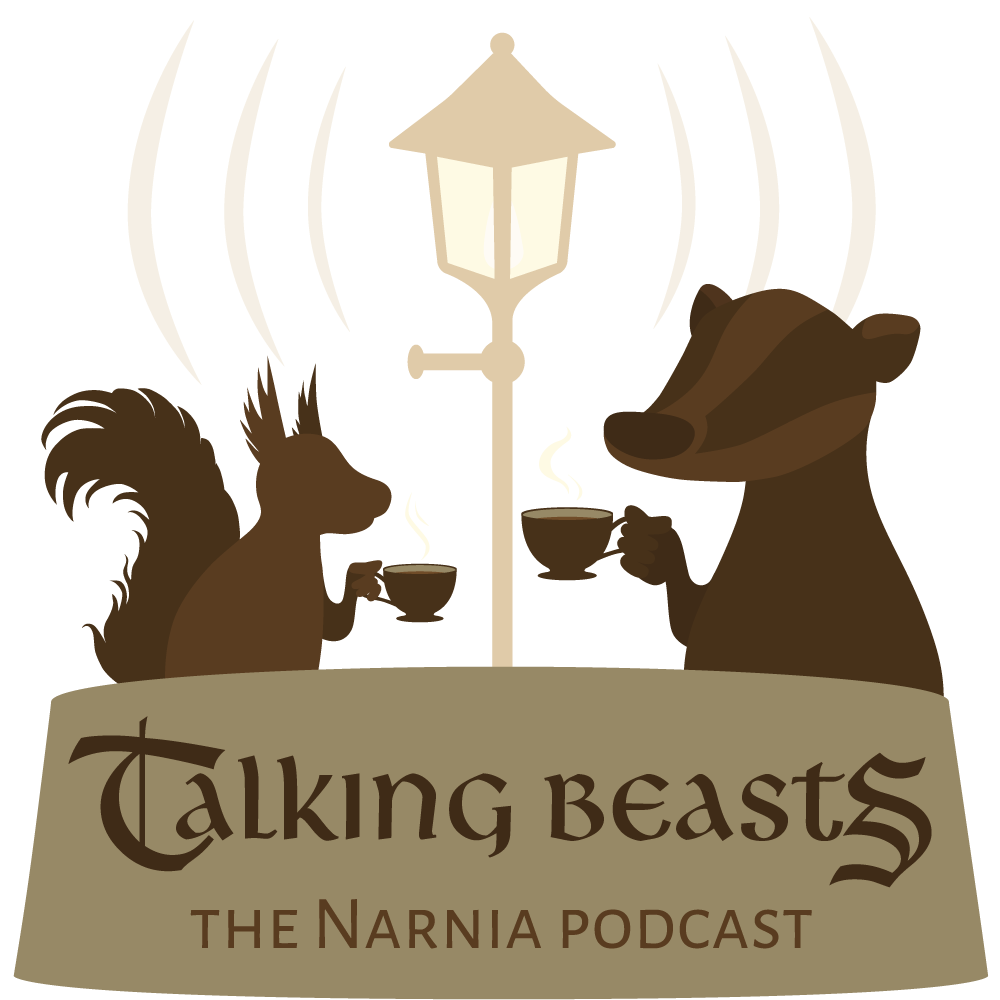
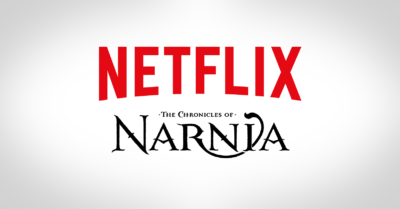
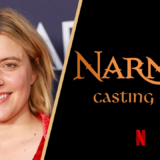
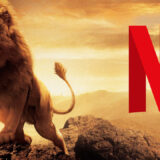

I actually have the Wood Between The Worlds on my wishlist for Narnia movies. I don’t know if it would work as a beginning.
Rilian stated that you would never see something like the Wood Between the Worlds in Star Wars. Actually… there is a “place” introduced in Star Wars Rebels series, known as the World between Worlds that was directly inspired by the Magician’s Nephew. While it doesn’t connect different universes, it connects all the planets of the Star Wars galaxy through space and time, the force “binding the galaxy together”. So while it’s definitely a more fantasy and less sci fi take on the concept, with the force and all, IT HAS found its way into Star Wars.
The Magician’s Nephew isn’t really science fiction, but it is something like traveling in space and time when Polly and Digory are transported to Charn, a world with a dying star as a sun. It is a world like another planet similar to those often found in science fiction stories. The book is fantasy which has some resemblance to science fiction. 🙂
Episodes that begin with these gun-to-your-head scenarios are always fun.
I adored this discussion, but it did make me kind of regret that I read The Magician’s Nephew as early as I did. I read it after I’d read The Lion, the Witch and the Wardrobe and possibly The Horse and his Boy, but I hadn’t read any of the others. I tried but I just couldn’t get into Prince Caspian or The Voyage of the Dawn Treader. (I’m sorry, Glumpuddle, Gymfan and Rilian. I know you guys love VDT.) I love those books now, but I just wasn’t hooked by the first couple of chapters of either of them as a kid.
While it’s probably not how I would start an adaptation, I think Glumpuddle’s idea for opening scene could serve a useful function as well as being intriguing surreal. A challenge for Digory and Polly’s reunion is that Digory has to relay to her all the exposition we, the audience, have just heard. The book can just say, “After a few minutes of hard talking, they had got it straight. Digory explained how beastly Uncle Andrew had been.” I can see Glumpuddle’s first scene ending with them noticing the guinea pig and, after a beat, saying, “Uncle Andrew!” Then we would flashback to the first scene of the book and when Digory puts on the ring for the first time, we could skip forward to just after he’s explained everything to Polly. It could work.
I’m going to defend Lewis’s decision to reveal Digory’s future identity here a little bit though I understand why people would prefer the surprise to be later. I feel like if the reveal that Digory is the professor came at the end, it would overshadow or dull the impact of the reveal of the wardrobe. You see, maybe it’s just me, but I wasn’t expecting there to be any origin of the wardrobe. Probably because I never felt like the wardrobe needed an origin story. I knew The Magician’s Nephew was going to be a prequel but by the time I got to last chapter, I felt like the prequel parts had been wrapped up. We’d had an origin for Professor Kirke, for the White Witch, for the lamppost. I’d assumed that was it, so the wardrobe at the end was a great surprise. If the reveal of the professor came right before it, I’d probably be expecting more reveals. Of course, this is likely because, unlike the podcasters, I remember the early reveal as part of my experience reading the book for the first time, though weirdly I remember it being in Chapter 4. If someone remembers it coming at the end, I understand why they’d prefer it that way.
It’s true that the way The Magician’s Nephew is written doesn’t mesh well with what The Voyage of the Dawn Treader implies about how Lewis supposedly learned the stories (though I love the mental image of an older Digory and Polly explaining their argument to him, and getting all caught up in it again, shouting at each other, and C. S. Lewis going, “yeah, no way am I putting all this in the book.”) But it doesn’t really bug me because, correct me if I’m wrong, the idea that the characters told the author about their adventures and he then wrote it down is only really featured in The Voyage of the Dawn Treader, and Lewis doesn’t even really keep it consistent for that one book. There’s no way Lucy, Edmund or Eustace could have told him about Caspian marrying Ramandu’s daughter or the after life of Pittencream. He really only uses that idea for that one passage in the last chapter.
(I hope it doesn’t come across like I love this book so much that I think it’s flawless of anything. Well, maybe I do. I can’t think of many off the top of my head. I guess it’s inaccurate for Lewis to write in Chapter 6 that everyone had lots of servants in this time period. The servants didn’t have lots of servants, did they? That’s the only flaw I can find.)
I think I agree with Glumpuddle that if you had label one of the Narnia books as science-fiction, it would be The Magician’s Nephew and I agree with Gymfan and Rilian (and probably Glumpuddle too) that if you did, you’d get a lot of complaints from library patrons that it was bad science-fiction. I want to pushback against Rilian’s claim that you could replace the rings with a magic wardrobe without really changing anything. I feel like the “feel” of the book would be altered if Uncle Andrew wasn’t doing something pseudoscientific like making rings out of Atlantean dust while wearing protective gloves. It’s hard for me to put my finger on why, that’s just the vibe I get.
Haha!!
I wonder how Wood Between the Worlds would be play out in Netflix’s adaption. It is on my wish list. I think it be great to see an atmosphere different than both Charn and Narnia. Also, even magical music score, with an angelic choir. I think it would be difficult to visualize on screen, but I am in anticipation to see it.
Re whether or not The Magician’s Nephew is sci-fi or not: after some thought, I’ve decided that it muddies the waters a bit more than any other Narnia book (except MAYBE The Last Battle), it’s still firmly a fantasy story, rather than sci-fi. I’ve heard genre described as basically just a marketing term – it only exists to make it easier to categorize stories, to help you determine whether or not this is the kind of book/movie/etc. you’d like.
I tend to agree with that idea, and as such, I think the tone and style the author chooses says just as much about the genre as the actual plot elements. Going back to the Back to the Future example, I agree with Rilian that, strictly speaking, it *could* have been a magic spell that sent Marty back in time. But at that point, Back to the Future is an almost entirely different movie, with an entirely different feel and atmosphere – and likely, a different audience. If nothing else, the climax would have to either be completely changed, or dependent on entirely arbitrary rules of magic (instead of well-explained “scientific” reasons).
I think the same would be true if you took out the fantasy elements and replaced them with technology. If Uncle Andrew had invented a device that traveled between worlds, rather than using mysterious dust “older than our world”, I think the device taking you to the Wood Between the Worlds would be incongrous with a sci-fi story. Perhaps that could be done intentionally, but it would still feel different than the product we got.
Also, I think the sci-fi comparisons stop working once you get to Narnia. Aslan’s creation of Narnia really can’t be easily made into a sci-fi story. The same applies to the magic apples, which will have different consequences based on your intent when you take one.
Look, for example, at some of the common sci-fi tropes: time travel, aliens and other monsters, and other worlds. You know what has all that in spades? “Teenage Mutant Ninja Turtles”! The whole plot revolves around a scientific concept, mutation (kind of like X-Men). The four brothers try to find a way to turn Master Splinter back into a human, there are other mutants like Bebop, Rocksteady and a bazillion others. There are aliens, monsters from another world called Dimension X, and a time-travel video game that is still my sister’s favorite. Is that sci-fi? It’s no less far-fetched than “a world that could be reached only by magic… the dust of another world.” And as a techie, If I have to explain my work to a kid, I kind of have to simplify it – it could be the magic of the rings was some Doctor-Strange levels of world-bending science. And I mean both Charn and Krypton had red suns, and that is obviously based in science. And the whole adventure was definitely the result of an experiment that went wrong and got out of control (which it has in common with Frankenstein). I could go on. There is a case to be made for calling MN a sci-fi book…
But… just… no! 😀
When I think of fantasy, Narnia is at the top of my list, and that includes MN. It’s got magic. The main villain is not a mad scientist, or alien invaders, or cyborgs from the future, but a witch. The weapon that annihilated the universe of Charn was not a nuke, or a virus, or ray gun, but a word (but then again, Thanos did a Half-Deplorable Snap, lol). Apart from the “hard” magic of the rings, it just doesn’t scream “sci-fi” to me. If it were, then the other magic in the book would have made as much sense as the rings – like, why did the Witch lose her powers when she came to our world (and yet have magic again in LWW)? I have some theories, and I’ll probably discuss them here at some point, but that’s beside the point. Or, why did the silver apple only give endless youth in Narnia? Obviously, the answer to questions like these is ultimately because {plot}. But that answer is more acceptable in a fantasy than a sci-fi. And the series has dragons, castles, and a flat world! Tell me that’s not a fantasy. 😀
Okay, so the line between sci-fi and fantasy are pretty blurry, and I could honestly discuss either side all night… but I will most definitely agree that MN is the most “sci-fi-like” of the books. 🙂
Overall, MN is still fantasy but judging off of this chapter alone, I can see Glumpuddle’s argument.
I wouldn’t say that that was a flaw or inaccuracy in Chapter 6.
“He unlocked the door, went downstairs, sent the housemaid out to fetch a hansom (everyone had lots of servants in those days) and looked into the drawing room.”
I think it’s logical to assume that he didn’t mean that to be taken in a strictly literal way. To paraphrase it: “everyone who was anyone had lots of servants.” But in those days it was very nearly true; it was a sign of respectability to keep a household. Only the really lowest classes didn’t have at least one servant, and if you were an “upper servant,” (butler or housekeeper, for instance) you definitely had servants under your command, even if you weren’t the one paying them.
Your definition of science fiction vs fantasy based on the cover (sheet metal vs trees) reminded me of an old carpet advert here. Rose petals vs sheet metal as floor coverings, were followed by the ideal carpet which had both beauty and wearability.
I’d never heard of the cover-picture system for setting book genres – it’s hilarious yet valid.
Thanks.